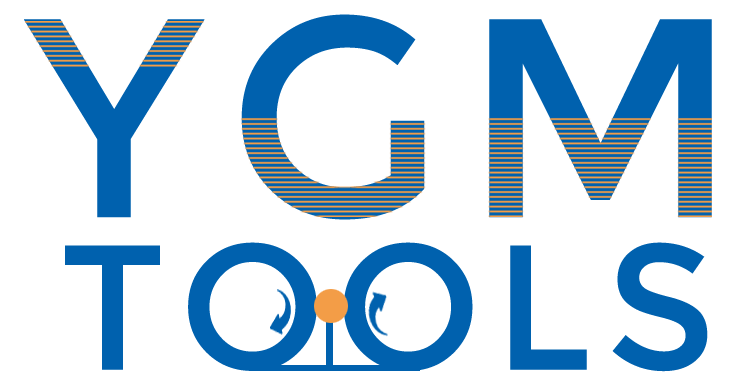
-
 Afrikaans
Afrikaans -
 Albanian
Albanian -
 Amharic
Amharic -
 Arabic
Arabic -
 Armenian
Armenian -
 Azerbaijani
Azerbaijani -
 Basque
Basque -
 Belarusian
Belarusian -
 Bengali
Bengali -
 Bosnian
Bosnian -
 Bulgarian
Bulgarian -
 Catalan
Catalan -
 Cebuano
Cebuano -
 Corsican
Corsican -
 Croatian
Croatian -
 Czech
Czech -
 Danish
Danish -
 Dutch
Dutch -
 English
English -
 Esperanto
Esperanto -
 Estonian
Estonian -
 Finnish
Finnish -
 French
French -
 Frisian
Frisian -
 Galician
Galician -
 Georgian
Georgian -
 German
German -
 Greek
Greek -
 Gujarati
Gujarati -
 Haitian Creole
Haitian Creole -
 hausa
hausa -
 hawaiian
hawaiian -
 Hebrew
Hebrew -
 Hindi
Hindi -
 Miao
Miao -
 Hungarian
Hungarian -
 Icelandic
Icelandic -
 igbo
igbo -
 Indonesian
Indonesian -
 irish
irish -
 Italian
Italian -
 Japanese
Japanese -
 Javanese
Javanese -
 Kannada
Kannada -
 kazakh
kazakh -
 Khmer
Khmer -
 Rwandese
Rwandese -
 Korean
Korean -
 Kurdish
Kurdish -
 Kyrgyz
Kyrgyz -
 Lao
Lao -
 Latin
Latin -
 Latvian
Latvian -
 Lithuanian
Lithuanian -
 Luxembourgish
Luxembourgish -
 Macedonian
Macedonian -
 Malgashi
Malgashi -
 Malay
Malay -
 Malayalam
Malayalam -
 Maltese
Maltese -
 Maori
Maori -
 Marathi
Marathi -
 Mongolian
Mongolian -
 Myanmar
Myanmar -
 Nepali
Nepali -
 Norwegian
Norwegian -
 Norwegian
Norwegian -
 Occitan
Occitan -
 Pashto
Pashto -
 Persian
Persian -
 Polish
Polish -
 Portuguese
Portuguese -
 Punjabi
Punjabi -
 Romanian
Romanian -
 Russian
Russian -
 Samoan
Samoan -
 Scottish Gaelic
Scottish Gaelic -
 Serbian
Serbian -
 Sesotho
Sesotho -
 Shona
Shona -
 Sindhi
Sindhi -
 Sinhala
Sinhala -
 Slovak
Slovak -
 Slovenian
Slovenian -
 Somali
Somali -
 Spanish
Spanish -
 Sundanese
Sundanese -
 Swahili
Swahili -
 Swedish
Swedish -
 Tagalog
Tagalog -
 Tajik
Tajik -
 Tamil
Tamil -
 Tatar
Tatar -
 Telugu
Telugu -
 Thai
Thai -
 Turkish
Turkish -
 Turkmen
Turkmen -
 Ukrainian
Ukrainian -
 Urdu
Urdu -
 Uighur
Uighur -
 Uzbek
Uzbek -
 Vietnamese
Vietnamese -
 Welsh
Welsh -
 Bantu
Bantu -
 Yiddish
Yiddish -
 Yoruba
Yoruba -
 Zulu
Zulu
Hydraulic Threading Machines for Efficient and Precise Pipe Threading Solutions
An Overview of Hydraulic Threading Machines
Hydraulic threading machines have revolutionized the way threading operations are completed in various industries. These efficient and powerful machines are designed to create precise threads on pipes, rods, and other materials, ensuring that they meet the exact specifications required for assembly and function. This article delves into the working principles, benefits, applications, and the future of hydraulic threading machines.
Working Principles
At the core of hydraulic threading machines lies their hydraulic system, which provides the necessary force and control needed for threading operations. The machines operate through a combination of hydraulics and mechanical components. Pressurized hydraulic fluid is utilized to power the threading head, which rotates the workpiece while a cutting tool advances into the material to create the threads.
The threading process typically involves the use of a die head that holds multiple cutting dies, allowing for the simultaneous cutting of threads. This not only speeds up the process but also promotes uniformity in the thread's shape and depth. Many hydraulic threading machines are equipped with automatic feed mechanisms, ensuring consistent performance and reducing the operator's manual labor.
Benefits of Hydraulic Threading Machines
1. Efficiency One of the primary advantages of hydraulic threading machines is their ability to produce threads quickly and with high precision. Traditional threading methods can be time-consuming, but the hydraulic system allows for rapid operation, significantly reducing production time.
2. Versatility Hydraulic threading machines are capable of handling various sizes and types of materials, making them suitable for a wide range of applications. From small pipes to large industrial tubes, the adaptability of these machines caters to diverse threading needs in different sectors.
3. Durability and Reliability Hydraulic machines are built to withstand rigorous working conditions, offering long service life and reliable performance. The robust design minimizes maintenance needs and downtime, further enhancing productivity.
4. Safety Features Modern hydraulic threading machines come equipped with advanced safety mechanisms, including emergency stop buttons, protective covers, and automatic shut-off features. These elements ensure operator safety and minimize the risk of accidents during operation.
hydraulic threading machine product

Applications
Hydraulic threading machines find applications in a multitude of industries. Some notable uses include
- Construction In construction projects, threading is crucial for the assembly of piping systems. Hydraulic threading machines are employed to create threads on pipes, which are then used in plumbing, heating, and ventilation systems.
- Oil and Gas The oil and gas industry relies heavily on precise threading to connect pipe segments in drilling operations. Hydraulic threading machines provide the necessary precision and strength required to handle high-pressure environments.
- Manufacturing Various manufacturing processes utilize hydraulic threading machines to create threaded components that are integral to machinery and equipment. These threaded parts play essential roles in ensuring the mechanical integrity of final products.
- Automotive The automotive industry also benefits from hydraulic threading machines for producing components that require threaded connections, ensuring the safety and reliability of vehicles.
The Future of Hydraulic Threading Machines
As industries continue to evolve, the demand for hydraulic threading machines is expected to grow. Innovations in technology will likely lead to even more efficient machines with enhanced features. The integration of digital controls, automation, and advanced monitoring systems will provide operators with greater precision and flexibility.
Moreover, as industries strive for sustainability, hydraulic threading machines equipped with energy-efficient hydraulic systems and materials will become increasingly popular. Enhanced training for operators on these advanced systems will also play a crucial role in maximizing performance and safety.
In summary, hydraulic threading machines are indispensable tools in modern manufacturing and construction practices. Their blend of efficiency, versatility, and reliability makes them a preferred choice across various industries. As technology advances, these machines will undoubtedly continue to evolve, further cementing their importance in achieving threaded components with superior quality and precision. The future looks promising for hydraulic threading machines, paving the way for new standards in threading operations.
